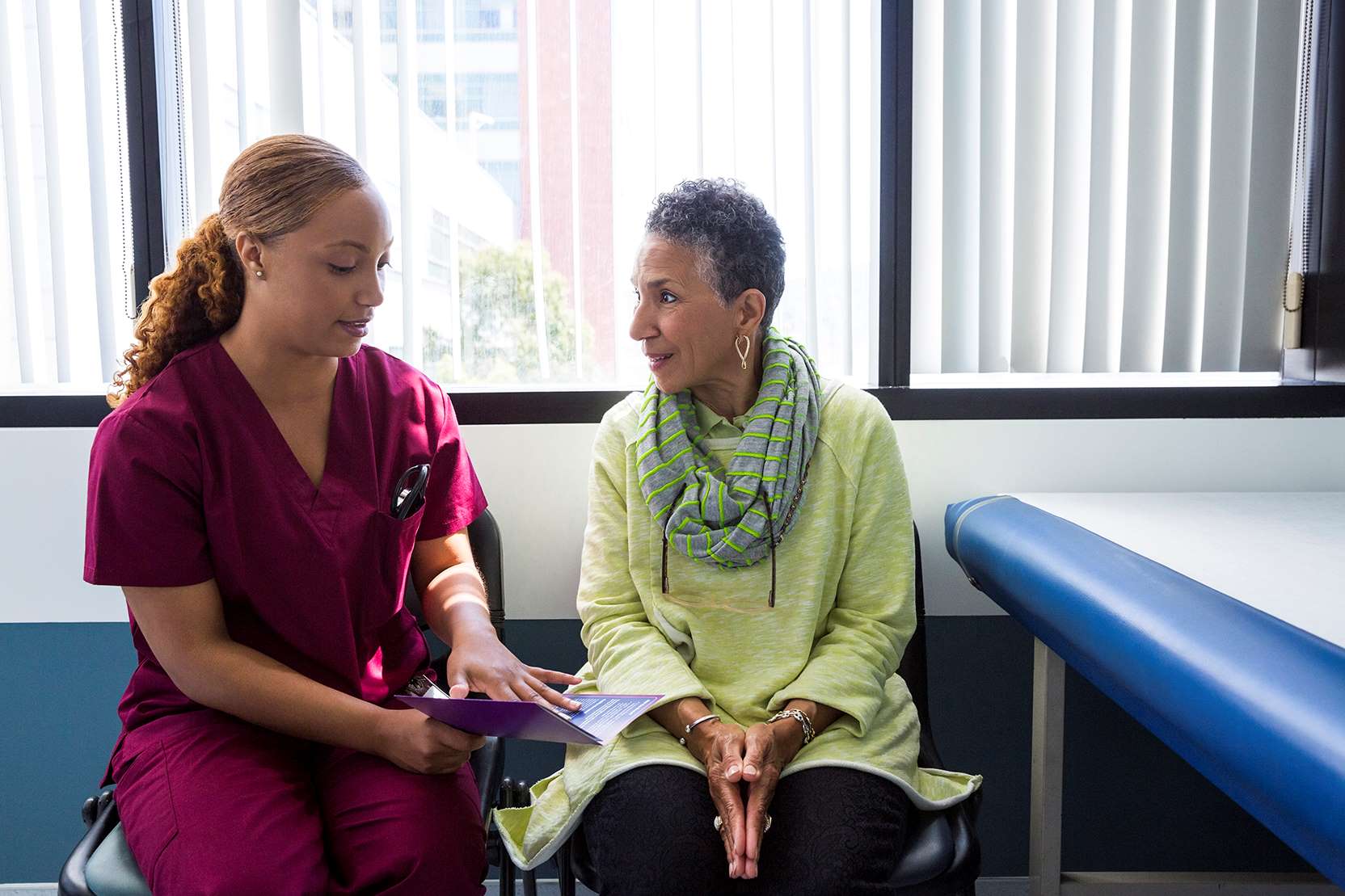The trial experience
Medications available today are the result of many years of clinical trials. Clinical trials, sometimes referred to as clinical studies, allow patients access to the latest therapies under development. These trials are a crucial step in bringing treatments to the patients who need them most, and by participating, you may be helping future patients.
WHAT IT'S LIKE TO PARTICIPATE
We explain the risks and benefits
Participating in clinical trials for investigational medicines offers patients potential benefits, such as access to cutting-edge treatments and expert medical care, while contributing to medical research. However, risks may include side effects, unpredictable outcomes, and time commitment. Careful assessment of these factors helps patients make informed decisions.
Not everyone is eligible to participate in clinical trials, and risks and benefits vary from trial to trial. Before you participate, typically known risks will be explained in an informed consent form that you’ll read and sign if you decide to take part. We also encourage you to speak with your health care professional/provider before participating. You may or may not benefit from the investigational treatment, as many new medicines will fail to benefit everyone. In some cases, participants will receive a placebo, which has no therapeutic benefit. During your participation, the clinical staff can support you and address any concerns or questions you may have.
Your care is overseen by highly trained experts
Throughout the trial, you typically have a team of medical professionals dedicated to your care, including nurses and doctors. You should continue to communicate with your existing healthcare providers as well.
You can stop at any time
All trials are completely voluntary — so if you decide to leave the trial you can do so at any time and for any reason.
Hear from real patients about their experiences
Want to see the impact clinical trials have had on the lives of some patients? Look through our collection of patient stories to learn more.
See stories

How do you participate?
Clinical trials are available in many countries around the world. Many academic medical centers, community hospitals, and centers of excellence offer a variety of clinical trials for a wide range of diseases and conditions. If you’re interested in participating in a clinical trial, speak with your healthcare provider.
You can search for clinical trials at the links below:
Make a difference on a Patient Advisory Council
As part of our commitment to patients first, and to ensure patients are involved at every level of decision-making within our organization, we have created Parexel Patient Advisory Councils. Our primary goal is to gain direct insights from patient communities and to help elevate patient voices globally.
If you are a patient advocate or advocacy group and would be interested in joining one of our patient advisory councils, please get in touch.
Frequently asked questions
Medicines are developed when scientists research potential drug compounds to determine their effectiveness against diseases. Only the most promising drug compounds undergo development and pre-clinical (laboratory) testing before clinical trials are conducted.
- Clinical trials are carried out to discover if an investigational medicine:
- Is relatively safe given potential side effects
- Ensure risk of side effects is acceptable
- Is effective at treating or preventing a disease
- Works better than other medications for a specific disease or condition
- Clinical trials are conducted in four Phases, I (one) to IV (4), to ensure adequate patient safety, monitoring, and effectiveness.
Clinical trials are conducted to determine whether an investigational medicine is safe and effective in treating a particular disease or condition. “Investigational” means that the drug has not been approved for a particular clinical use and is still being evaluated in studies. These studies also check for any side effects that may develop while taking the investigational medicine
Clinical trials are performed according to strict government, scientific, and ethical guidelines. These guidelines help to ensure that participants’ rights are protected while information about the investigational medicine is collected.
An investigational medicine must pass three phases of clinical testing before it is approved by a country’s regulatory authority and made available to the public. The fourth phase is after the medicine has been approved for use in the real world, outside of a clinical trial.
Phase I studies
Phase I study programs usually consist of a very small number of study participants who are healthy volunteers (they don’t have the disease/condition). This is different when studying medicines for oncology, where patients with cancer are treated in Phase I. These studies aim to establish the relative safety and tolerability of the therapy given side effects and identify the most effective dose of a medication as a starting point for future studies in actual patients. If the safety results are satisfactory then second phase of testing in patients can begin.
Phase II studies
These studies also include a relatively small number of study participants who are diagnosed with a condition that a medicine is aimed to improve or prevent. In this phase, the therapy’s effectiveness at treating the condition is measured and observed, along with the safety of the investigational medicine given any possible side effects. If the results are satisfactory then the medicine can move to the third phase of testing in patients.
Phase III studies
Phase III studies include a large number of study participants than previous phase studies. Many times, patients from all over the world are included in this step to understand the effectiveness and relative safety in a diverse group of patients. They aim to confirm the safety of the investigational medicine in larger numbers of patients and measure the best dosage of the medication found in the previous phases of study compared to current approved medicines or vaccines for the disease or condition. Phase III studies may include a placebo depending on the disease or condition. A placebo looks just like the investigational medicine but contains no active ingredients. Using placebos in clinical trials helps scientists better understand whether an investigational medical treatment is safer and more effective than no treatment at all.
Some studies will compare an existing approved treatment (known as a comparator) with the investigational medicine.
Phase IV studies
These studies usually happen after a medication or vaccines is approved by government bodies such as the U.S. Food and Drug Administration and the National Institute for Health and Care Excellence or the European Medicines Agency. These studies help determine long-term safety of the approved drug.
Each clinical research study has different rules about who is eligible to participate. Eligibility may be based on age, gender, disease-type and stage, overall medical history, and many other factors.
Clinical trials are available in many countries around the world. Many academic medical centers, community hospitals, and centers of excellence offer a variety of clinical trials for a wide range of diseases and conditions.
You can search for clinical trials at the links below:
If you’re interested in participating in a clinical trial, speak with your healthcare provider.
By participating in a clinical study, you are making a valuable contribution to medical research and helping us learn more about future medications and disease states. If you decide to take part in a clinical study, you’ll help researchers understand your condition better and play an important role in ongoing efforts to improve healthcare.
Our goal is to ensure that patients participating in research studies are supported as much as possible. A team of doctors and other healthcare professionals are there to answer any questions, and your health and wellbeing are their priority throughout your participation.






